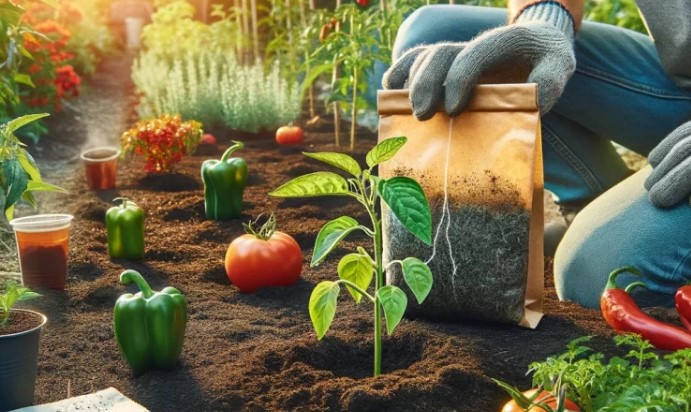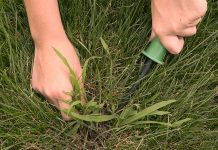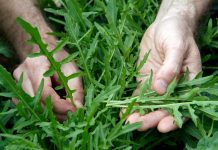Gardening enthusiasts often seek innovative methods to enhance plant growth and ensure a bountiful harvest. While traditional techniques like proper soil preparation and regular watering are essential, incorporating unexpected elements can sometimes yield surprising benefits. One such unconventional but effective addition to your gardening routine is the humble used tea bag. Specifically, when it comes to cultivating peppers, tomatoes, and various other vegetables, the discarded tea bag can play a vital role in promoting plant health and productivity.
Harnessing the Power of Tea:
Tea bags, after being steeped in hot water to brew a comforting cup of tea, still retain valuable nutrients and organic compounds. These remnants, though seemingly spent, can provide significant advantages when introduced to the soil. Components such as tannins, polyphenols, and trace minerals present in tea bags contribute to soil fertility and plant vitality. When incorporated into the garden, these elements nourish the soil microbiome, stimulate root development, and enhance nutrient uptake in plants.
Why Peppers, Tomatoes, and Vegetables?
Peppers, tomatoes, and other vegetables thrive in nutrient-rich soil with optimal moisture levels. The addition of used tea bags addresses both these requirements effectively. Peppers and tomatoes, in particular, are heavy feeders, demanding a steady supply of nutrients throughout their growth cycle. The organic matter and micronutrients present in tea bags provide a sustainable source of nourishment, ensuring robust growth and higher yields.

Key Benefits of Using Tea Bags in Gardening:
Soil Enrichment: Tea bags enrich the soil with organic matter, improving its structure and fertility over time. This enrichment fosters a healthier soil ecosystem, supporting beneficial microbes essential for plant growth.
Nutrient Retention: The nutrients released from tea bags, including nitrogen, potassium, and phosphorus, are slowly absorbed by the soil, reducing the risk of leaching and ensuring a steady supply of essential elements for plant growth.
Moisture Regulation: Tea bags act as natural moisture regulators, helping the soil retain moisture during dry spells while preventing waterlogging during periods of excessive rain. This moisture regulation promotes optimal growing conditions for peppers, tomatoes, and vegetables.
Pest Repellent: Certain compounds found in tea, such as caffeine, possess natural insect-repellent properties. By incorporating used tea bags into the garden, you can deter pests and minimize the risk of damage to your precious crops without resorting to chemical pesticides.
How to Use Used Tea Bags in Your Garden:
Composting: After enjoying your cup of tea, simply collect the used tea bags and add them to your compost bin or pile. As they decompose, they will contribute valuable organic matter to the compost, enriching it with nutrients.
Mulching: Alternatively, you can place the used tea bags directly around the base of pepper, tomato, and vegetable plants as a form of mulch. Over time, the tea bags will break down, releasing nutrients into the soil and suppressing weed growth.
Soil Amendment: For an immediate nutrient boost, open up the used tea bags and sprinkle the tea leaves directly onto the soil around your plants. Lightly incorporate the tea leaves into the topsoil to ensure optimal nutrient uptake.
Incorporating used tea bags into your gardening routine can be a simple yet effective way to promote the health and productivity of peppers, tomatoes, and other vegetables. By harnessing the power of tea, you can enrich the soil, improve nutrient retention, regulate moisture levels, and even deter pests naturally. So the next time you brew a cup of tea, don’t discard the used tea bag—give your garden a nourishing boost instead. Your peppers, tomatoes, and vegetables will thank you with a bountiful harvest.










